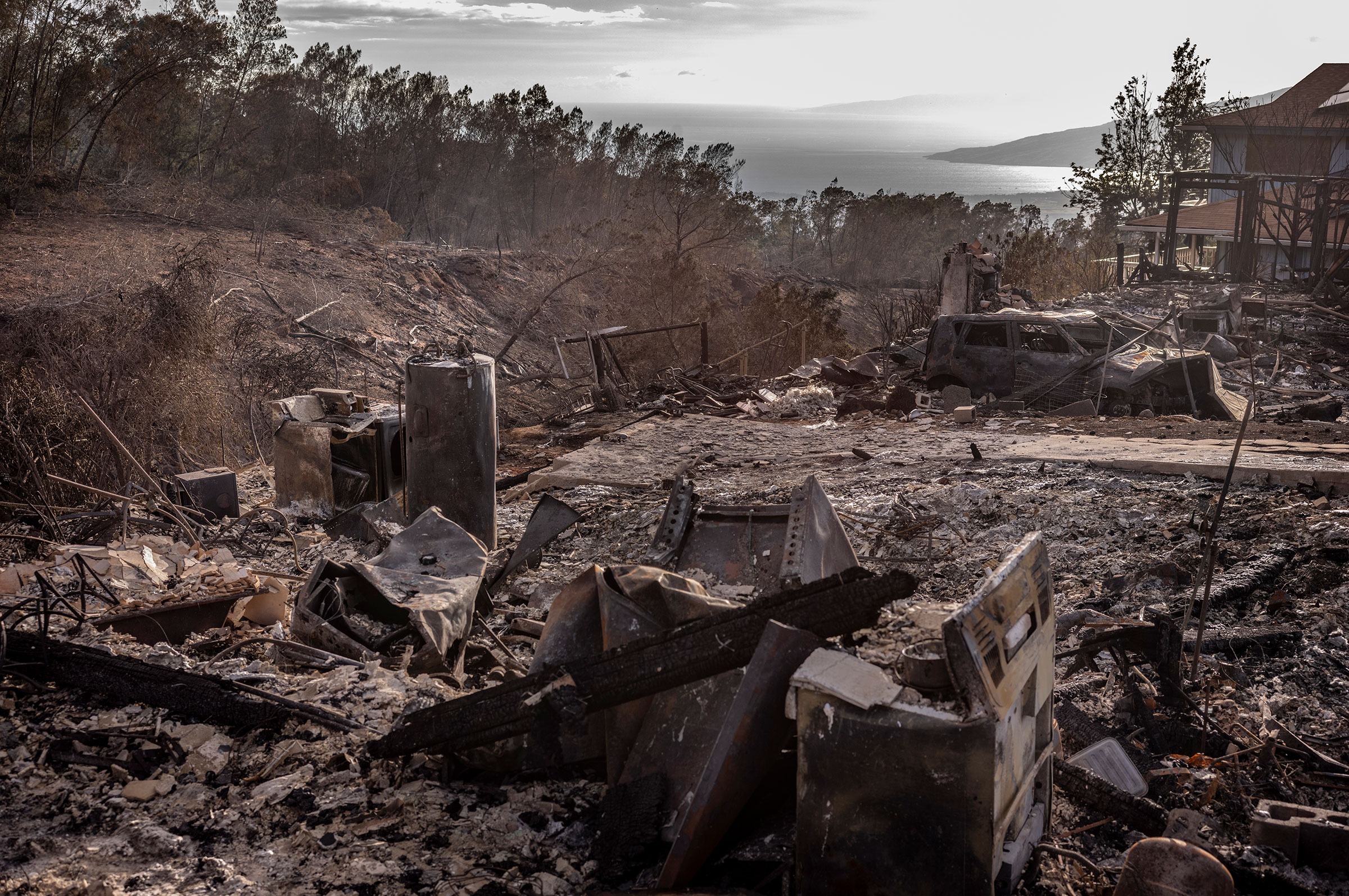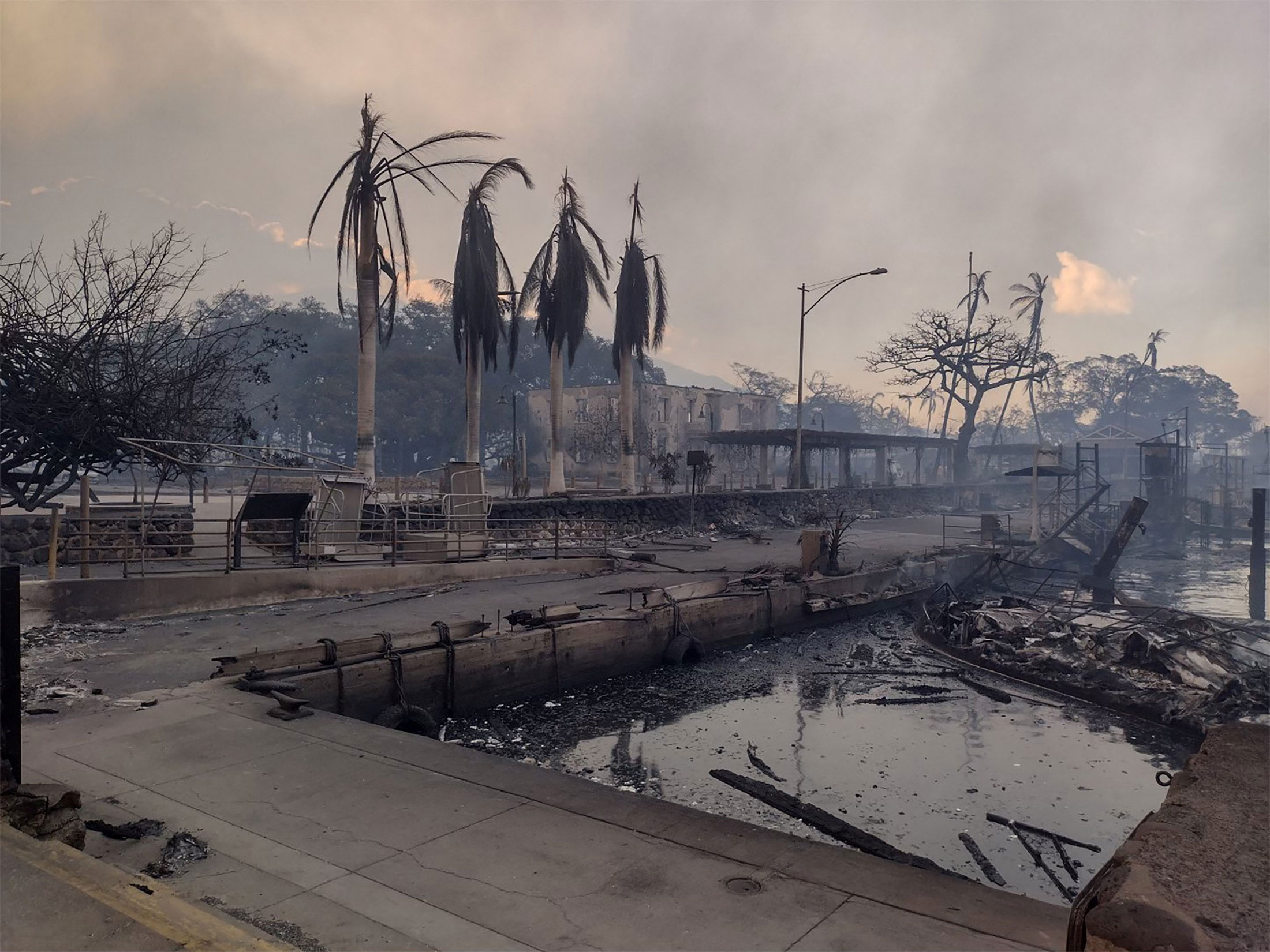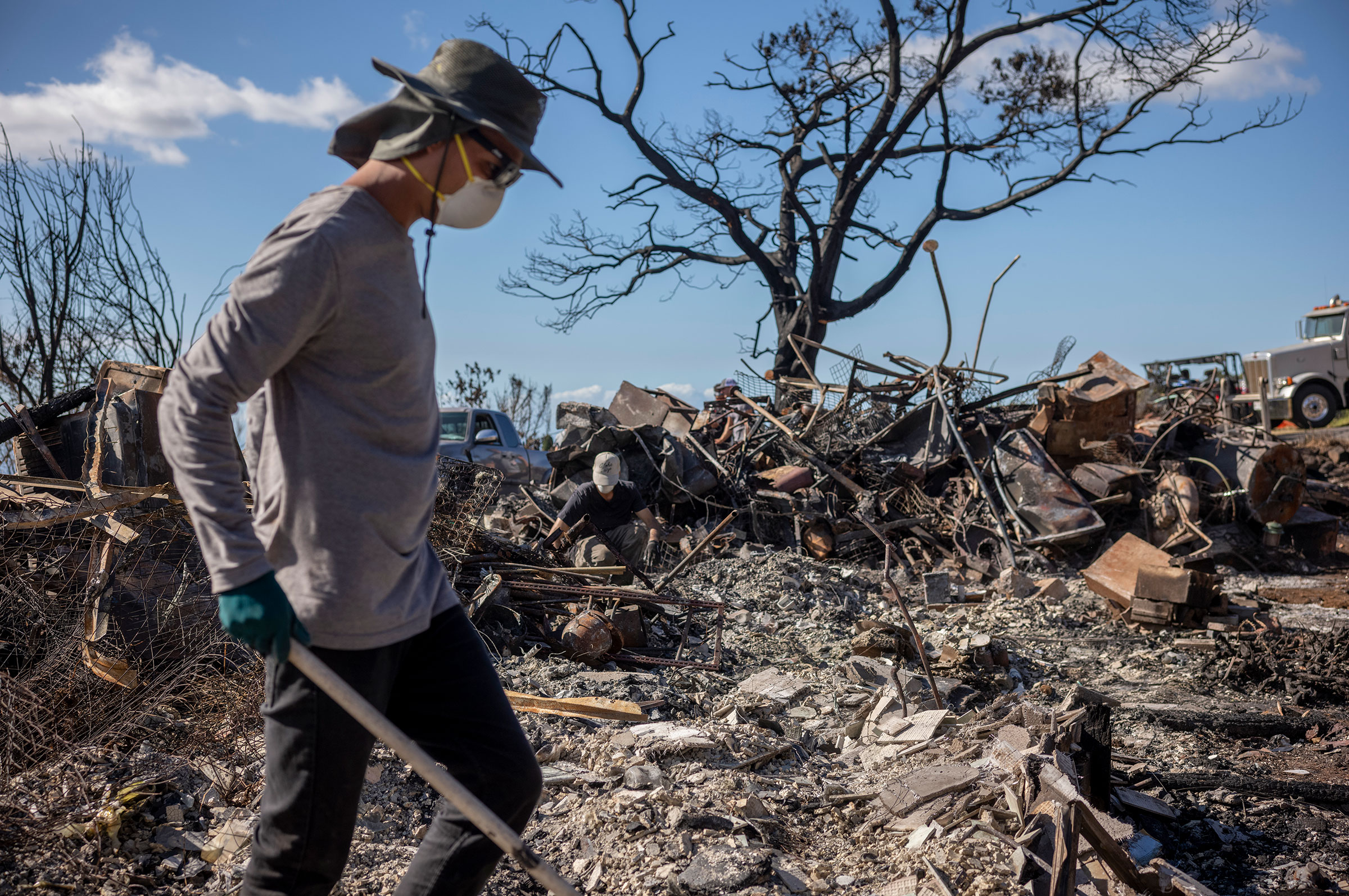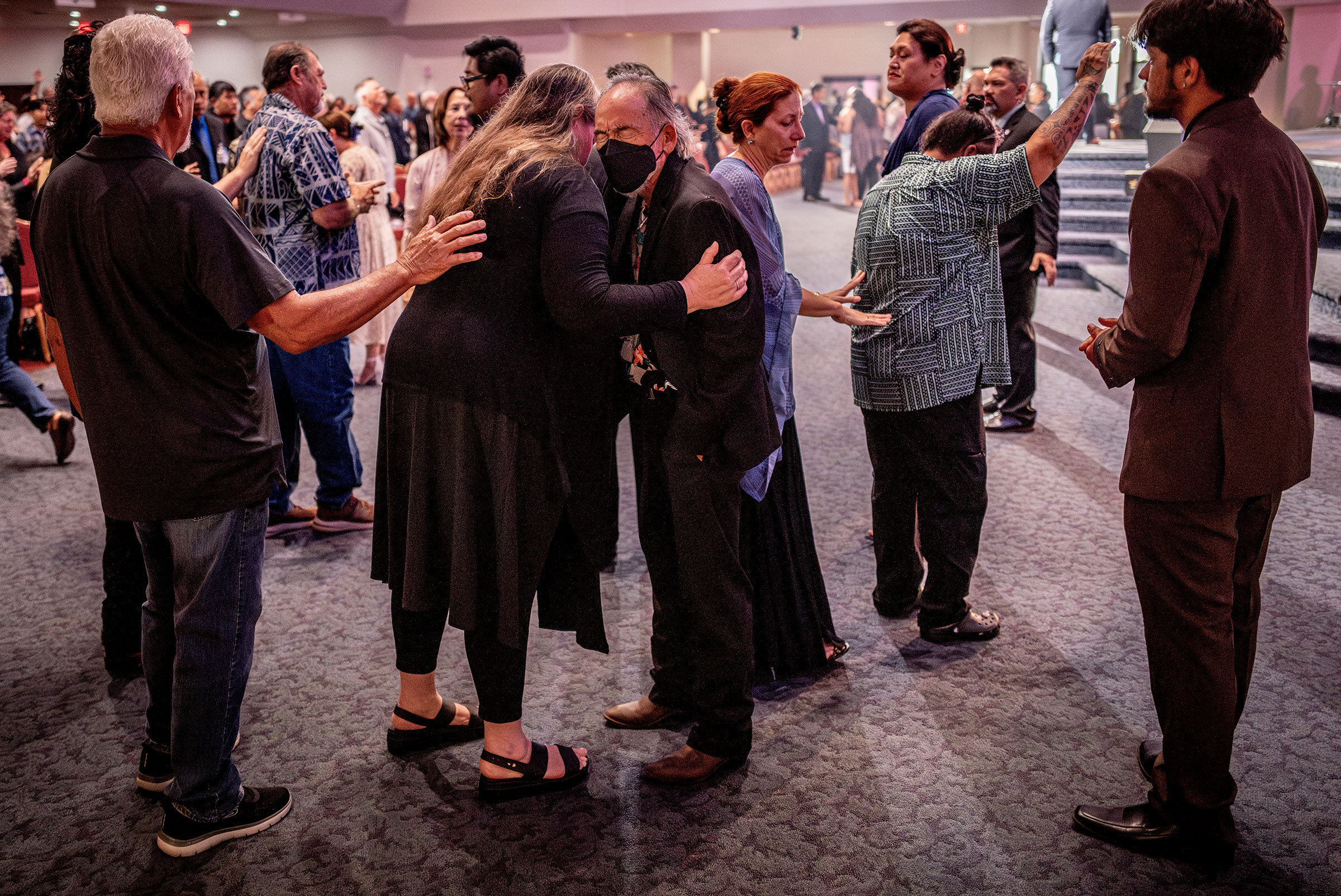Tens of thousands of residents have left Maui and the Big Island in Hawaii after blazing fires devastated homes and hundreds of businesses. The fire is the deadliest in U.S. history, killing at least 93 people, according to officials in Maui County.
Officials say they expect the death toll to “rise dramatically” as emergency workers and residents search the area to assess damages and provide aid. Two victims have been identified, but police have not yet released their names.
The most recent post by the county said that firefighters were still working to contain the fires and extinguish flare-ups in Lahaina and Upcountry, but had controlled the Pulehu/Kīhei fire after days of work.
More than 2,170 acres have burned in fires that started on Tuesday. Wifi, and cellphone service are slowly being restored. More than 5,000 people remained without power on Sunday, down from 11,000 on Friday, according to Power Outage.us.

On Thursday, President Joe Biden approved a disaster declaration for the state of Hawaii and sent federal aid and funding for residents of Maui County. He also said people who'd lost a loved one or whose homes had been destroyed would get help "immediately."
Non-residents are prohibited from entering the wildfire disaster area, though locals can present a state identification card to enter West Maui through Waihe’e. On Friday, some 1,418 people were staying in six Maui shelters that opened because of the fire, according to county officials. A water advisory is now in place for certain areas in Upper Kula and Lahaina that have been affected by the fires.
Lahaina, a historic town that was once the capital of the Kingdom of Hawaii, has been the most affected. Residents that heralded the town as a place with strong Native Hawaiian roots and history are mourning the loss of historic landmarks, as reports indicate that more than 271 structures have been impacted.
“We are grieving with each other during this inconsolable time,” said Maui County Mayor Richard Bissen Jr. “In the days ahead, we will be stronger as a ‘kaiaulu,’ or community, as we rebuild with resilience and aloha.”
Here’s what to know.

What caused the fires
Meteorologists attribute a combination of Maui’s dry conditions, low humidity and strong trade winds from Hurricane Dora, a Category 3 storm (though it was previously Category 4) hundreds of miles south of Hawaii in the Pacific Ocean as of Thursday morning, as the reason behind the Maui wildfires.
“If you have all of those conditions at the same time, it’s often what the National Weather Service calls ‘red flag conditions,’” Erica Fleishman, director of the Oregon Climate Change Research Institute at Oregon State University, told the Associated Press.
Climate change also plays a role in these fires, according to experts. Climate change increases the frequency of extreme weather events— like stronger hurricanes— and global warming, which causes vegetation to get drier.
So far, National Guard helicopters have dropped 150,000 gallons of water on the Maui fires and nearly 100 firefighters have been working 24/7 to help stop the fires. The fire in Lahaina is 85% contained, though officials warn that it could still flare up.
The Pacific Disaster Center (PDC) and the Federal Emergency Management Agency’s assessment found that more than 2,207 structures were damaged or destroyed because of the fire, and that 86% of the buildings exposed to the fire were residential. The estimated cost to rebuild stands at $5.52 billion.
Tourists discouraged from travel
Officials are highly discouraging any nonessential travel to the island through the month of August, and have made various evacuation efforts to send travelers back home. More than 11,000 people were flown out of Maui on Wednesday.
Tourists initially struggled to reach the airport due to closed highways and roads, but the County of Maui has coordinated transportation to Kahului Airport through Thursday. “Additional buses will be added in based on demand,” the county said.

On Thursday, United Airlines said they were sending empty planes to Kahului Airport so that they could send passengers back home.
American Airlines said they were adding an additional flight to assist tourists, but expect to operate all their scheduled flights on Thursday.
People with AirBnB rental homes are being asked to consider offering it to displaced residents for a temporary or long-term stay. Hotels and resorts are also being asked to consider the same.
How to help victims
The Maui wildfire is now the deadliest blaze in American history.
To help Maui residents recover from the fires, the Hawaiʻi Community Foundation and Maui United Way are accepting monetary donations online. Physical goods like non-perishable food, water, blankets, and other hygiene items are being accepted at the War Memorial Complex in Wailuku on Thursday, from 8 a.m. to 6 p.m.
An additional list of resources and donation centers has been released by the county of Maui.
If you are trying to contact a lost loved one, contact the Red Cross hotline at 1-800-733-2767.

More Must-Reads from TIME
- Caitlin Clark Is TIME's 2024 Athlete of the Year
- Where Trump 2.0 Will Differ From 1.0
- Is Intermittent Fasting Good or Bad for You?
- The 100 Must-Read Books of 2024
- Column: If Optimism Feels Ridiculous Now, Try Hope
- The Future of Climate Action Is Trade Policy
- FX’s Say Nothing Is the Must-Watch Political Thriller of 2024
- Merle Bombardieri Is Helping People Make the Baby Decision
Contact us at letters@time.com